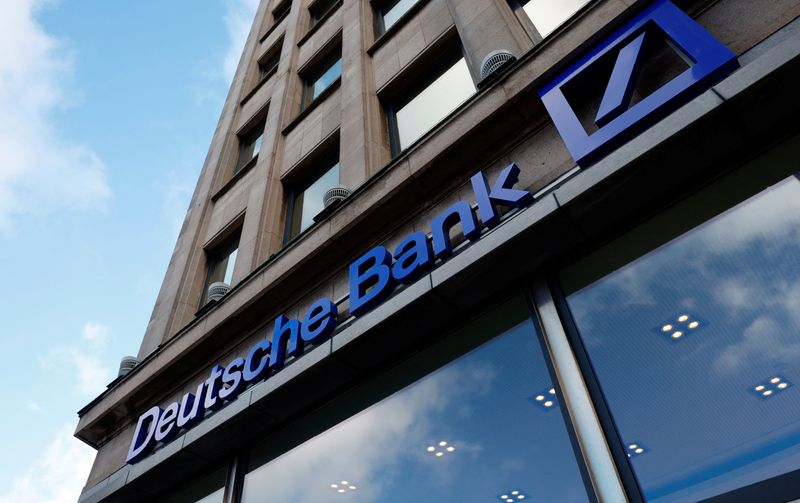By Tom Sims and Alexander Hübner
FRANKFURT (Reuters) -Deutsche Bank has more work to do to overcome its Postbank troubles even after announcing settlements with more than half the plaintiffs who had accused it of underpaying them in its takeover of the German retail bank in 2010.
Deutsche Bank's shares initially rose about 3% on Thursday after the bank's announcement that it had reached settlements in about 60% of the claims from the plaintiffs, including the largest individual plaintiff.
The development goes some way in helping Deutsche to move on from the litigation that has cast a shadow over the bank, but a number of cases are outstanding, with some former Postbank investors still holding out.
Jan Bayer (OTC:BAYRY), a lawyer for some of the plaintiffs in outstanding cases who rejected a settlement proposal last week as a "crackhead" offer, said Wednesday's news had little bearing on his clients.
"Whatever was agreed ... has no effect on any other claimant's decision, so it is irrelevant going forward," he said.
The bank's shares were 2% higher by midmorning, topping the DAX index of 40 blue-chip stocks. The shares are up 16% year to date.
In announcing the settlements late on Wednesday, Germany's largest bank also said it would reduce by 430 million euros($478.93 million) the provisions it had set aside for potential future payouts, which will have a positive impact on third-quarter earnings.
The bank also said it was pleased with the settlements and suggested a scrapped share buyback could possibly be back on the agenda.
"Against the backdrop of this improvement to our capital plan, we will review our distribution plans and discuss these with our regulators as part of our ongoing dialogue," Deutsche Bank said on Wednesday.
Under the settlement's terms, Deutsche is paying former Postbank shareholders 31 euros in addition to the 25 euros it paid them originally in 2010 to take over the bank.
Deutsche embarked on its Postbank acquisition during the 2008 global financial crisis. Postbank, with millions of customers, has its roots in Germany's postal system.
The deal aimed to broaden Deutsche's reach in Germany and provide a steady domestic income stream after years of rapid international expansion. But Postbank became a source of consumer complaints, regulatory scrutiny and the costly lawsuits.
For years, lawsuits claiming Deutsche Bank had underpaid former shareholders for their holdings in Postbank bounced around in the courts.
The case took a dramatic turn in April, when a court in Cologne indicated that it might find some valid elements in the claims of the former Postbank shareholders, prompting Deutsche to make an unexpected provision to offset any possible claims.

In the aftermath, Deutsche scrapped plans to reward investors and buy back its own shares and reported a quarterly loss, breaking a profit streak of 15 consecutive quarters.
($1 = 0.8978 euros)